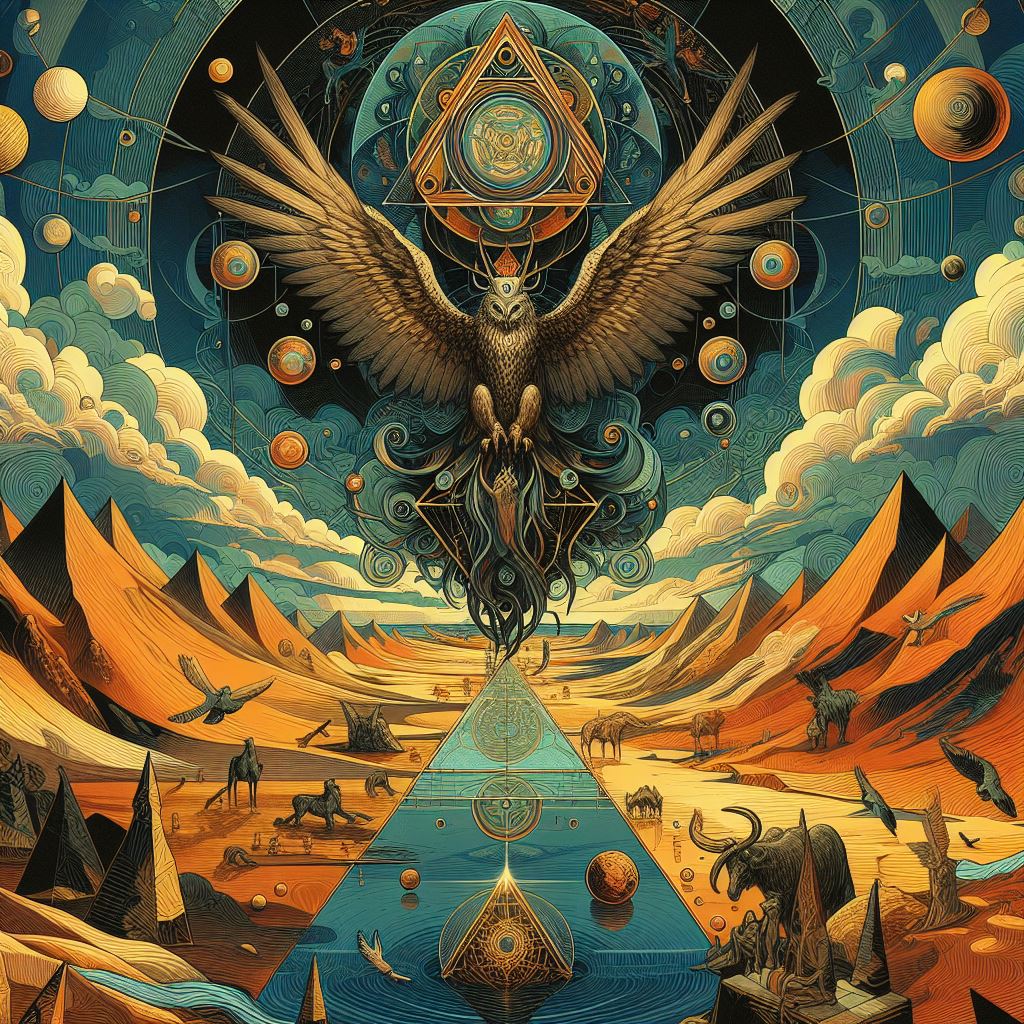Magic and Spirituality
Over the years, people have grown interested in embracing a more relaxed, alternative form of spirituality. This shift is characterized by a departure from rigid doctrines and the absence of looming threats related to the afterlife. This trend has emerged as traditional religions have seemingly lost their guiding principles, leaving their followers searching for spiritual fulfillment. As time has progressed and science and technology have advanced, along with factors like increased interconnectedness, humanity has developed a profound sense of emptiness. This void is intricate to fill.
Consequently, many have turned their attention to alternative spiritual paths, seeking solace for their concerns and a remedy for their inner loneliness. These seekers are drawn to spiritual practices that provide answers and encourage personal growth, are free from judgment, and emphasize unlocking one’s potential in the present. This essay will explore sinister spirituality and its connection to magic.
Spirituality and Balance
To delve into spirituality, we must move beyond the notion that a person must be purely spiritual or entirely material. Instead, a harmonious balance between life’s spiritual and material aspects enriches our existence. It’s essential to understand that sinister spirituality doesn’t aspire to replicate the Dalai Lama or any other spiritual authority figure. In fact, it opposes dogmatism and sectarianism, rejecting unwavering truths and all-knowing figures. Embracing open-mindedness is crucial. If you encounter dogmatic ideas or self-proclaimed gurus, it’s advisable to steer clear, thus avoiding potential complications. Sinister spirituality is highly individual and subjective. Each person’s experience is unique and cannot be measured or judged. One must draw their own conclusions and determine if their experience is genuinely authentic.
Rituals and Inner Transformation
Sinister spirituality frequently employs rituals, although it’s crucial to understand that this doesn’t equate to performing magic. Rituals are a series of practices that help individuals connect with hidden aspects of their psyche and simultaneously, with forces from the Other Side. Through this process, an energy exchange occurs, benefiting all parties involved. As a result, individuals become more conscious and fulfilled, transcending their barriers and limitations, often rooted in their minds. When these processes are prolonged and aimed at transforming individuals into something more, they become initiatory in esoteric terms. Achieving this usually requires commitment, time, and hard work. However, not all spiritual processes are the same, nor do they need to be initiatory. Many end up being so due to the internal transformations they induce.
The Communion of Spirituality
Spirituality extends beyond personal transformation. It encompasses a profound communion with specific forces, creating a unique connection with the Other Side and its inhabitants. This connection fosters grace, happiness, peace, clarity, and understanding, among other things. The sinister path doesn’t involve prostration, supplication, or begging; it emphasizes balance, exchange, and respect. Devotional acts, offerings, meditation, and elevation rituals enable a special connection with spirit guides, demons, gods, and more. This diversity of approaches is welcomed, as there are no dogmas, and individuals are encouraged to express their spirituality in ways that resonate with them.
Magic: The Art of Transformation
Magic is closely associated with various forms of alternative spirituality. It’s essential to clarify that one can practice magic without adhering to a specific spiritual path, just as one can follow a spiritual path without practicing magic. These two elements are distinct and can be pursued individually according to personal preferences.
Magic is the art of transformation, a dynamic force always in motion. Like any other art form, it requires learning and practice to master its secrets. Being a competent magician involves performing rituals that yield the desired changes. This proficiency is not a divine gift but a skill that can be learned. The source of a magician’s power resides in the depths of their psyche, necessitating training to awaken latent abilities.
Magic is free from dogmas, although various schools offer models and explanations of how it works. The foundational principles of magic are universal, regardless of the tradition followed. Aspiring magicians must learn multiple skills, such as meditation, trance induction, visualization, perception of subtle energies, energy manipulation, astral projection, divination methods, invocation, and evocation. Learning these skills involves studying the theory and practical application. Dedicated effort and practice lead to better results.
Combining Magic and Spirituality
The fusion of magic and spirituality is a personal choice, not a requirement. However, those who embrace both often find their practice more comprehensive and fulfilling. Ultimately, the decision to follow one path, the other, or both is a profoundly personal one—those who follow both ways often experience enriched personal growth and spiritual development. Ultimately, the effectiveness of one’s chosen path is a matter only one can determine.
Good luck on your journey, and thank you for reading.
Daemon Barzai
